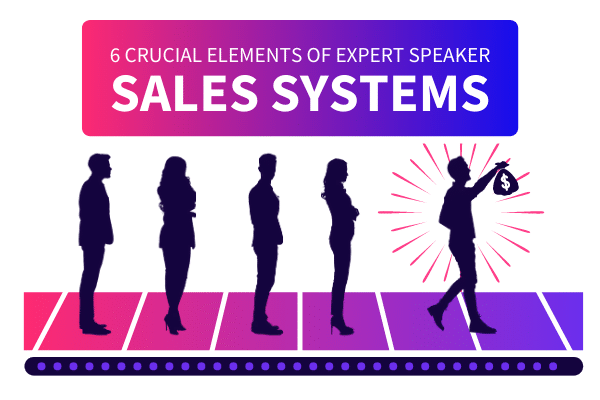If you’re a regular reader of the SpeakerFlow blog, you probably already know one thing above all else: we’re all about systems. Whether it’s speaker sales systems, marketing strategies, organizational frameworks, or automation, we’re huge advocates for using technology and planning to make your life easier. To put it more succinctly, Save Yourself Some Time, Energy, Money, and Stress (or “SYSTEMS”). Cheesy, I know, but the underlying point is undeniably true!
With that in mind, this guide is about sales systems, specifically. In the average speaking business, sales is the greatest source of stress and the most difficult area in which to improve. It can also be daunting if you’re a new speaker. After all, successful sales require confidence in yourself, but it can be difficult to build confidence when you’re new to the speaking industry.
Knowing this, we evaluated our team members’ shared sales experience – both in and outside of the speaking industry – to determine what works. The results was an easily-digestible list of elements in the best speaker sales systems, all of which are outlined below. That way, whether you’re a new speaker or an accomplished one, you can get to work building a dependable sales system.
Let’s dive in! 🎉
Consistent Lead Generation
The first component necessary in speaker sales systems is consistent lead sources. One of the biggest mistakes experienced speakers make is relying almost entirely on referrals from past clients. But what happens when those organizations experience a change in leadership? What about when their obstacles change, and your speech topics are no longer relevant? Even more worrisome, what about when there’s a global pandemic and, suddenly, your regular clients aren’t hosting live events?

For each of these reasons – and many more – diversifying your lead sources is key. It’s also important that your lead sources are reliable. The last thing you want is to waste time or money chasing leads that aren’t a good fit.
Depending on your focus industry(ies), your sources for incoming and outgoing leads will vary. However, regardless of your focus, there are a few tried-and-true ways to build your lead channels over time.
- Consistently create and share content. This demonstrates your authority and provides valuable information, both of which attract leads. Pro Tip: SEO optimize all of your content to make it easier for potential clients to find.
- Ditch lead lists, which are shared with tons of other speakers. Instead, use search tools like the Speaker Intel Engine to search within Google using highly specialized search terms. You’ll find more leads in less time – I promise.
- Take time to prospect for – and reach out to – new leads each week. Even if it’s just a few hours, dedicating time for each of these tasks allows you to focus, find leads faster, and improve your sales skills over time.
Ideal Client Profile (ICP) and Value Proposition
Second in our list of elements for speaker sales systems is your ideal client profile, or ICP, and your value proposition.
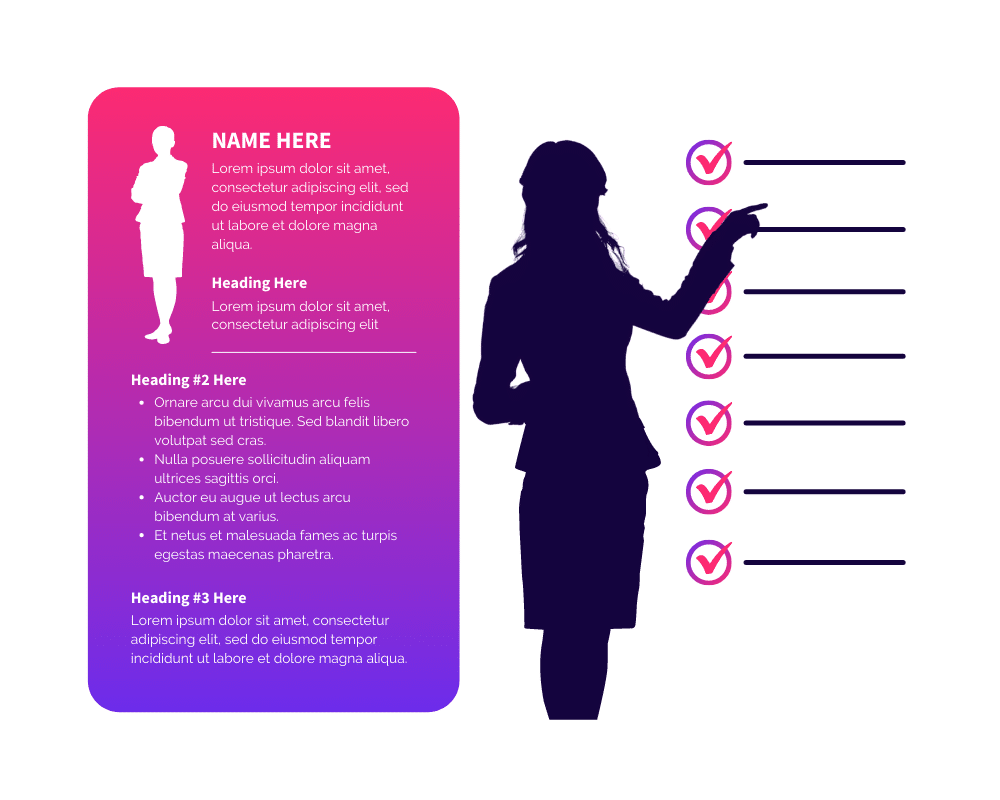
The first component, your ideal client profile, highlights the main traits you look for in people best suited to your products or services. It includes a variety of professional and demographic details such as age, gender, industry, title, level of experience with a given problem, or even geographic location. Your ICP can also outline your average client’s challenges and goals, all of which should relate to solutions provided by your sales offerings.
It’s also important to note that you should have multiple ICPs. Within our team, for instance, we have ICPs outlined for four different “levels” of speakers, ranging from aspiring speakers to seasoned experts. In the same way, your thought leadership business should include profiles for each “category” of client. If you’re starting this from scratch or if you want to update the ICPs you have, HubSpot’s guide for writing ICPs is a good place to start.
After writing your ICPs, it’s time to focus on the second component: your value proposition. This explains who you serve and how. Our value proposition, for example, is “SpeakerFlow helps experts grow their businesses through technology, strategy, and community.” Another example is a sales speaker, whose value proposition may be along the lines of, “John Doe helps individuals and companies increase revenue and streamline sales processes through keynote speeches, workshops, and consulting.”
In short, your ICP helps you identify which leads are the best fit, so you can prioritize them. Then, once you’ve connected with them, your value proposition explains why they should hire you.
Predefined Product or Service “Packages”
Moving on, the third component in the best speaker sales systems is clear and convenient “packages.” As most well-known speakers will tell you, the most financially successful speakers – and the ones with the most sustainable sales processes – don’t sell a single product or offer a single service (like speaking). They offer a range of things that work together to meet their clients’ goals.
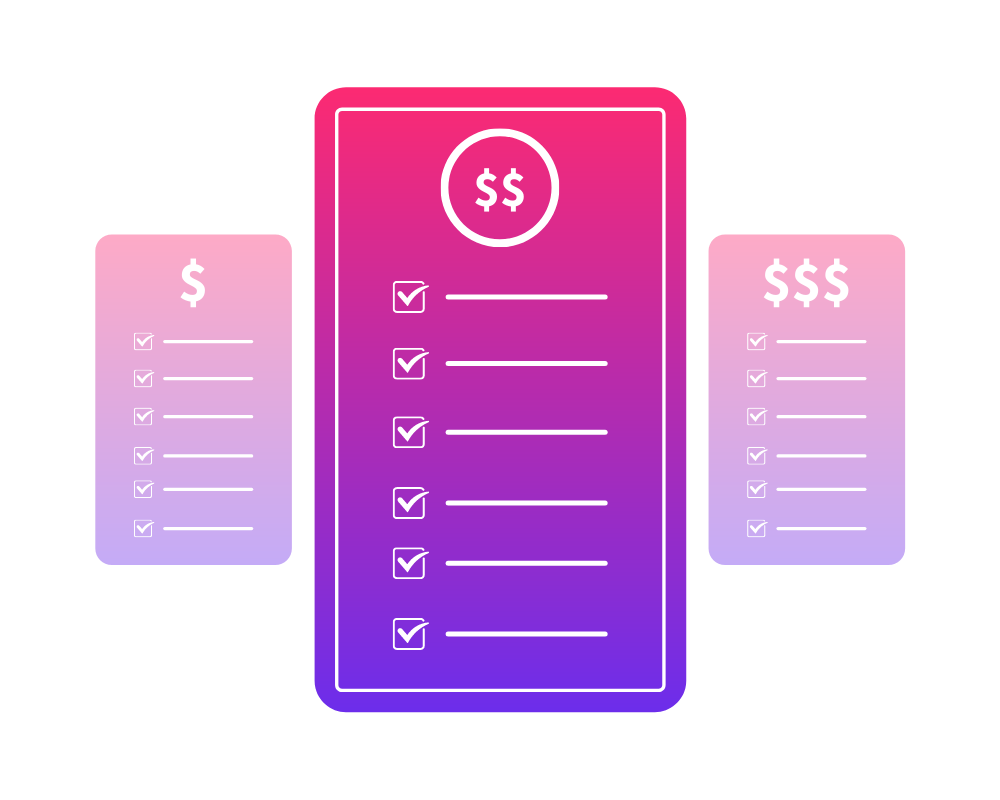
So, as a thought leader, you could just offer sales keynotes. Or, instead, you could also offer supporting tools to extend the impact of your keynote. These include offerings like coaching, workshops, online coursework, books, workbooks and journals, virtual consulting – you name it.
All of these products and services enable you to confidently outline how you help clients tackle challenges. The problem occurs when a client is overwhelmed by the number of options and isn’t sure which to purchase. That’s where speaking “packages” come in.
To build your packages, think of purchasing a phone. If you buy a used phone through Craigslist or Facebook Marketplace, it might be a little cheaper, but it can be time-consuming to add it to a cellular plan. Conversely, if you buy a phone through a cellular company, it’ll cost more. But, on the plus side, the setup will take minutes and the company’s support team can handle it for you. It’s about balancing cost with convenience.
Likewise, when you’re pitching a potential client, your packages should mirror that cost and convenience balance. Your packages can be a keynote, then a keynote and copies of your book for the audience, then a keynote, books, and pre-event promotional videos. The components are up to you, but “pre-packaging” them makes it easy for potential clients to quickly see which option balances convenience and their needs, then say, “Sign me up!”
Easily Accessible Testimonials & Client Outcomes
Number four of our speaker sales systems components is testimonials. Now more than ever, with the amount of information available on the Internet, proof matters. Whether it’s proof of your speaking skills, your consulting abilities, the value of your coaching programs or books, anything you sell can be reviewed online. What’s more important is ensuring that you consistently collect testimonials from past happy clients. Even if they were referred to you by a friend or colleague, as much as 93% of consumers incorporate online reviews in their purchasing decisions, event organizers included. That’s a huge opportunity for you to make a positive impression before you even get on the phone with a potential client.
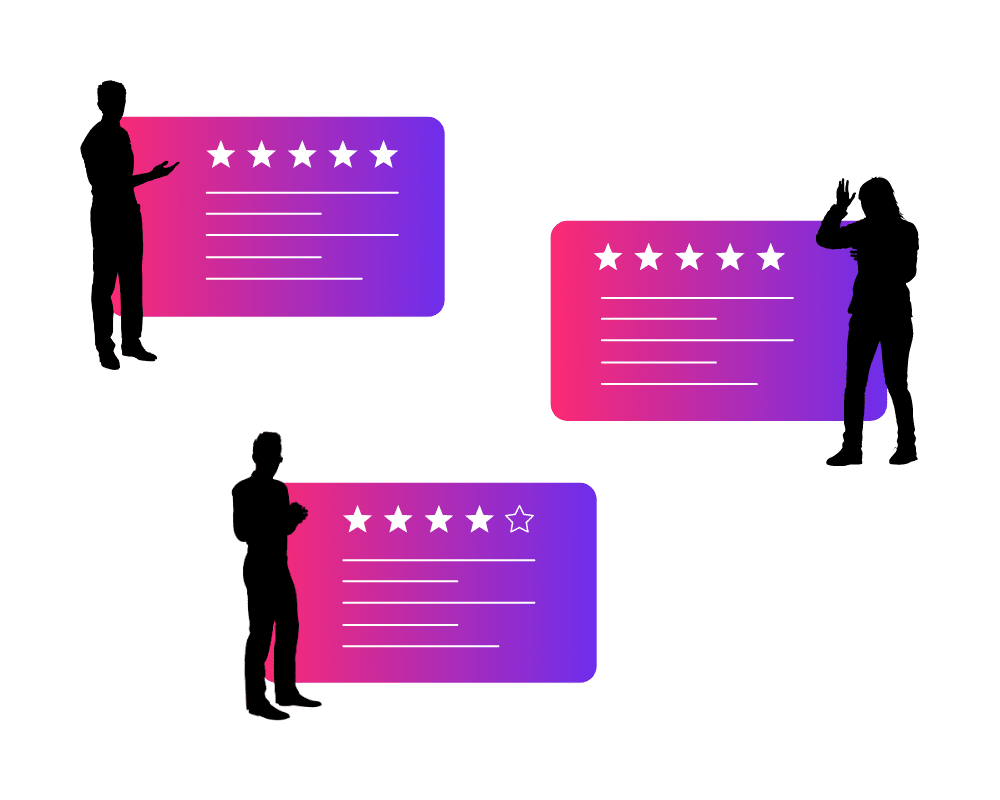
To ask for reviews as a speaker, we generally recommend the following:
- Don’t ask for a review immediately after the event. Instead, email or call the client a day or two afterward. This gives them time to reorganize after the event and leave a review when they’re least distracted.
- Include reviews from recent projects and notable clients on your website. Your site is the central hub (at least on the outside of your business), so the more proof you can showcase there, the better.
- Keep your testimonials all in one place so you can easily access them when a potential client asks for references. We recommend using your CRM, but you can also use Google Drive, WorkDrive, Dropbox – whatever you prefer.
Summarily, even if you hate the thought of asking for testimonials, it’s important to do so. Not only will the vast majority of your future clients consider them before hiring you. According to Pew Research Center, 38% never leave reviews on products and services but up to 67% would if you asked. Don’t waste that chance!
Consistent Follow-Ups With Potential Clients
Fifth of our speaker sales systems components is consistent communication. Like your own inbox after a long day, event organizers regularly balance an unbelievable amount of requests. As a result, even if they’re trying to prioritize the speaker selection process for an upcoming event, it’s easy to get distracted. This leaves it up to you to keep the lines of communication open.
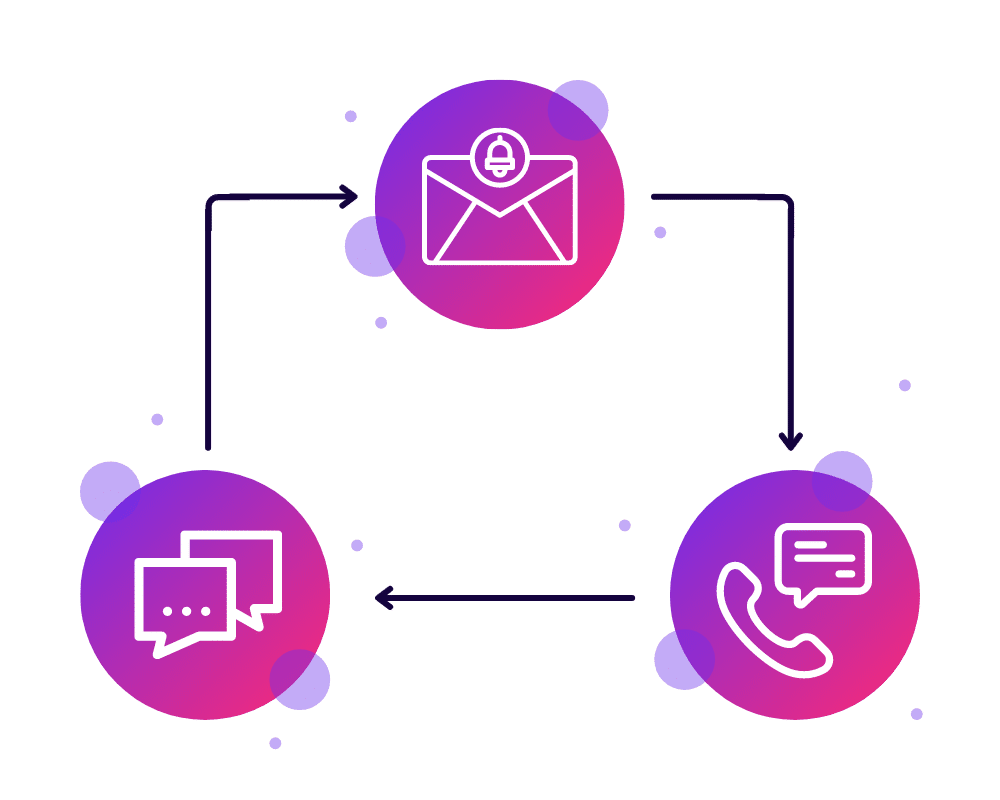
To do this, first, regularly follow up with event organizers during the sales process. If they mention a date by which they’ll get back to you, make a note. Then, follow up with them a day after that if you haven’t heard anything. If they don’t mention a specific date, reach out up to a week or so after your previous email to touch base.
Second, after you’ve had a call with the event planner, regularly follow up about the event specifically. Frame it as support, and make sure you’re focused on ways you can help make their life easier before, during, and after the event. The more you can communicate, “I’m here to make the ‘speaker’ part of the event as painless as possible,” the more likely they are to hire you.
Third, after the event, follow up a few times to ask for a review, feedback, and referrals. Worst case scenario, they don’t answer. Best case scenario, you get a testimonial, insight on how you can improve, and a new lead. Win, win, win!
Pro Tip: We recommend building these communication touchpoints into your CRM, either as a set of tasks to complete manually or through automation. If you don’t have a CRM, SpeakerFlow CRM has them built in, so you can hit the ground running. Just visit our CRM page or book a discovery call to learn more. 👍
Standard Operating Procedures (SOPs)
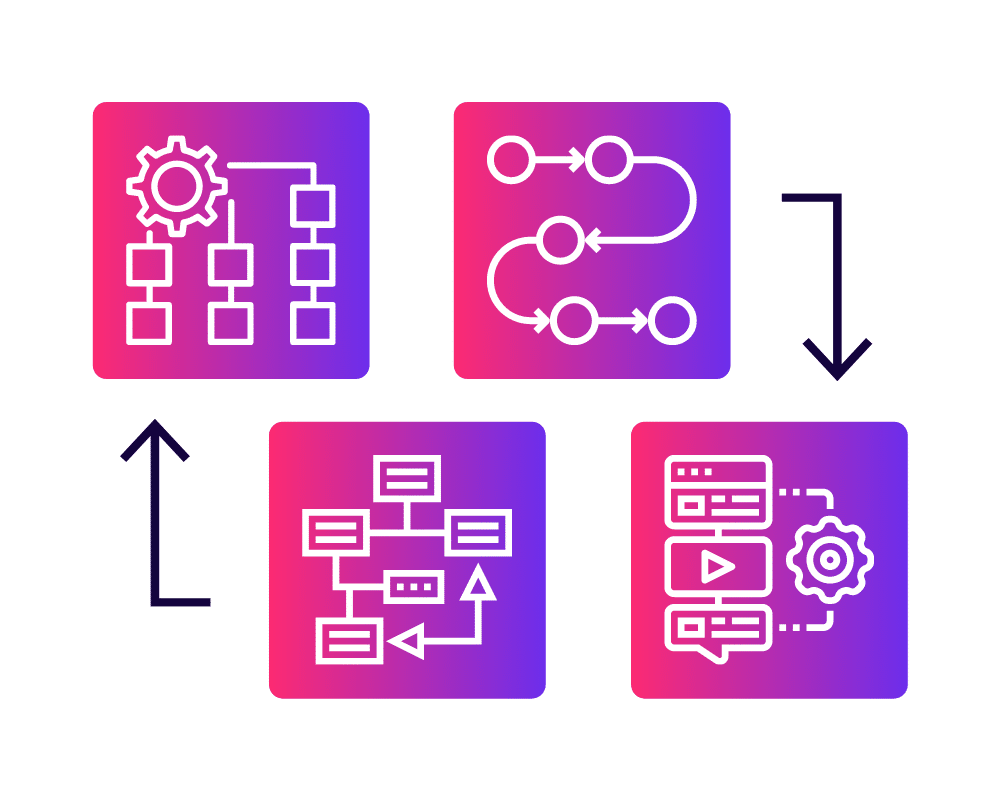
Last but not least, no speaker sales systems are complete without standardization. Each of the aforementioned elements should be a matter of routine in your speaking business. Some you’ll only have to do once, like building your ideal client profile. Others should be a repetitive, reliable stage in your sales process, like consistent lead flow and communication.
In any case, as you build these elements into your business – and as you learn from your mistakes and improve over time – take the time to document what works and what doesn’t. Eventually, as tedious as these components may be, you’ll be able to hand them off to someone else, such as a speaker agent or virtual assistant that sells on your behalf. But, in order to do that, you have to first master them yourself. Hopefully, this guide helps you do just that, and the next time you’re reading a SpeakerFlow blog, your speaker sales systems are well underway.
For more information and resources for professional speakers, check out our podcast! Each week, we interview an expert in the world of thought leaders to hear their take on a current issue or event. That way, you’re able to hear all sides of the story – from speakers to speakers bureau representatives to association executives – and learn from their experience. 👌


